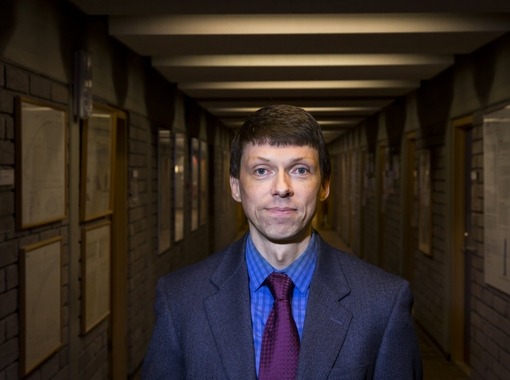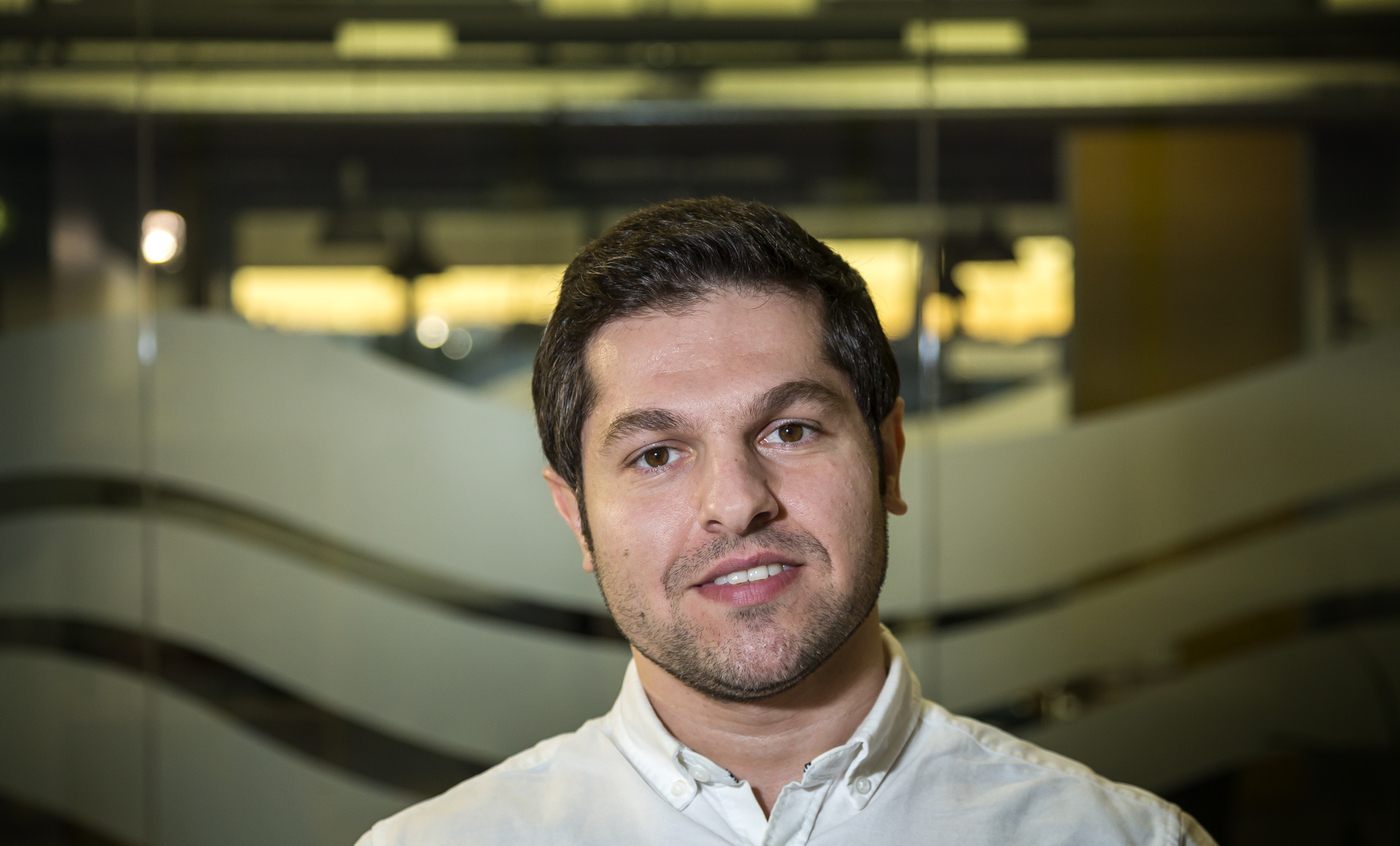Historically, the port in an Icelandic fishing village was often a ramshackle area built on a spit of land. It was also a vibrant hub of human activity, the heart of the village reflecting the prosperity of the community.
Since then, ports have developed into high-tech areas equipped with powerful, complex machinery and controlled by processes that ensure safety, optimal performance and efficiency. In recent years, ports have been required to meet higher standards with regard to adaptability and sustainability. This has meant that some ports have even been designated closed and secure industrial areas – no longer a destination for a Sunday stroll.
"Ports have an important position in supply chains and economies. They play a vital role in complex transportation systems, serving as centres for the flow of goods, containers and passengers," says Majid Eskafi, postdoctoral researcher in environmental engineering at the University of Iceland, on the fascinating phenomenon of the port.
Majid is currently conducting a specialised research project looking at ports in collaboration with Icelandic businesses. This project clearly aligns with the new Strategy of the University of Iceland, UI26, which emphasises that research at UI should meet the needs of Icelandic society and industry and promote a sustainable world.
Developing a port plan that can adapt to changes
The goal of the research is to develop an innovative and highly adaptable port plan that guarantees continuous operations in a time of constant change and ensures that all expansion is appropriate for the environment and the community, in the short and long term. The team, which is made up of numerous stakeholders involved with the ports in the Ísafjörður area, is looking at social responsibility in this context. There are many ports in the area, the largest of which is in Skutulsfjörður.
"Ports all over the world are handling more container ships due to globalisation," says Majid, explaining the inspiration behind the project. "Cruise ship companies are also increasingly looking for new destinations, as we have seen in Ísafjörður."
Majid says that commercial fishing, fish farming and other value-creating enterprises are expanding rapidly in the Westfjords, which is having a significant impact on activity in the ports. He points out that unexpected circumstances can completely transform operations in a harbour area, almost overnight. He names the pandemic as an example, which prevented cruise ship traffic to Ísafjörður and caused significant disruption to the global shipping industry. Majid also explains that avalanches can have serious consequences for harbours, such as the one that occurred in Flateyri two years ago. "This means that port planning is a particularly challenging task, subject to a lot of uncertainty."
Important for ports to be adaptable
Guðmundur Freyr Úlfarsson, professor of transport engineering, is Majid's supervisor for this project. He says that the goal of the research is to develop an adaptable and resilient plan that will ensure that harbours in the Ísafjörður area meet the needs of stakeholders and that operations are able to withstand disruptions.
Majid and Guðmundur argue that ports must be capable of adapting to a constantly changing situation. Adaptability guarantees that a port can continue to operate and maintain quality of service. It is also essential to have a sustainable plan that is consistent with conservation of the natural environment, e.g. through specialised structures such as floating docks, which have less environmental impact than other docks, and energy exchange or electrification, which reduce the need to use ships' fossil fuel burning engines in port. Ports can thereby not only combat climate change but also adapt to the impact of climate change.
Majid and Guðmundur say that the study includes a careful stakeholder analysis and that the success of the adapted ports is evaluated with regard to time efficiency and potential competitiveness.
"We analyse the port's throughput and predict how it will develop in the future. Our findings show increased output in container shipping. We also developed a framework to handle uncertainty, both opportunities and weaknesses, in the overall organisational procedures for the foreseeable future," says Majid.
"Adaptability makes the port better able to respond to future changes. The plan enables the port to grow, which creates a synergistic effect between expanding business activities and the benefits that follow. Future generations in Ísafjörður will be able to adapt everything pertaining to operations as quickly as possible, i.e. infrastructure, organisation and services, in order to meet any demands the future may hold," says Guðmundur Freyr Úlfarsson, professor of transport engineering.

Adaptable ports support society and the environment
This is the first research of its kind in Iceland. It received funding from the University of Iceland Research Fund, the Municipality of Ísafjörður, the Icelandic Road and Coastal Administration and the Icelandic Union of Port Authorities.
"Adaptability makes the port better able to respond to future changes. The plan enables the port to grow, which creates a synergistic effect between expanding business activities and the benefits that follow. Future generations in Ísafjörður will be able to adapt everything pertaining to operations as quickly as possible, i.e. infrastructure, organisation and services, in order to meet any demands the future may hold."
Majid says that projects of this nature are extremely important, not just for the region's ports, but for society as a whole. "An adaptable and sustainable plan supports links between industry and the community, since ports exist together with local communities and the two must develop and thrive together. An active port strengthens the local economy," says Majid, explaining that the project aligns perfectly with the UN SDGs, which prioritise making cities and inhabited areas safe, sustainable and accessible and also promote long-term sustainable economic growth and decent employment opportunities for all.
As well as Majid and Guðmundur, the following people are involved with the research: Ali Dastgheib, associate professor of coastal engineering and port development at the IHE Delft Institute for Water Education; Poonam Taneja, researcher of ports and waterways at TU Delft; Gunnar Stefánsson, professor of industrial engineering at UI; and Ragnheiður I. Þórarinsdóttir, rector of the Agricultural University of Iceland and visiting professor of environmental and civil engineering at UI.




